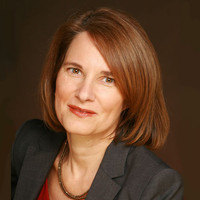Tuesday, Jan. 6, 2026, was a solemn anniversary for Congress, five years to the day since a mob of President Donald Trump's followers broke into the Capitol and savagely battled the police officers defending us, those trapped inside.
I should say it was solemn and healing for the Democratic members of the House and Senate, who honored the police officers who suffered or died from the melee, holding a candlelight vigil on the Senate steps. Republicans, taking their cue from Trump, did their best to squelch the story into silence — while he pushed a false narrative on the White House website.
House Democrats held an extended hearing for much of the day, when one after another told their personal stories in public for the first time.
One member said he had a polio leg and feared he could not jump over a railing in the House of Representatives chamber. Another said she had worked as a 911 dispatcher and never expected to find herself in earshot of gunfire in the sacred temple. Some broke down in tears as they said they were so grateful and worried for the Capitol police officers' safety.
Senate Democratic Leader Chuck Schumer said he was whisked away within 20 feet of the marauders, who said, "Get him!"
Composed, Speaker Emerita Nancy Pelosi listened carefully to dozens of stories, nodding in sympathy. She herself was in grave danger that day, first on the list of who the mob of thousands wanted. Two thousand broke into doors and windows, armed and ready to inflict harm. Some were literally loaded with bear spray, baseball bats and flagpoles.
I was there, too, for that dark turning point in our nation's character. While Congress was captive in the Capitol, the rioters tried to overturn the 2020 election, invited and incited by Trump.
In the press gallery of the House chamber, it was clear that members of Congress and the press were utterly shocked that the peaceful transfer of power was under siege. That is the hallmark of democracy, and we prided ourselves on being the world's democracy.
Right?
America was a shining light to the rest of the world. We'd never witness the attempted murder of our government — much less by the president. Right?
Wrong. Trump declared a war within, driving daggers into our body politic. It is certainly not over yet.
To put it bluntly, such political violence couldn't happen here, until it did.
Now we must face that the attack on our beloved building was not just on the marble dome. The attack shattered our illusions about our cherished country.
We are not as special as we liked to think.
Jan. 6, five years ago, made me see how precious, fragile and rare democracy is. Another takeaway from the day is that democracy won but not by much.
Like the Duke of Wellington said about the Battle of Waterloo, it was a very near thing. History is not predetermined.
A few notes for the historical record: This was no overnight operation. The thousands of white nationalists who heeded the call came from Florida, Texas, California, all corners of the country. They arranged rides and hotel rooms on open chatrooms.
The FBI's intelligence failed to warn or prepare for the storm on its front lawn.
Trump loved every minute of the three-hour pitched battle and refused to call off the dogs of war.
By midnight, Pelosi and then-Vice President Mike Pence showed great courage and leadership by insisting everyone go back to the ransacked Capitol to finish the job — certifying the Electoral College count.
It took hours, and some Republican challenges, but finally the day was done in the darkness before the dawn.
On Tuesday, Sen. Sheldon Whitehouse (D-R.I.) expressed outrage on the floor that Trump issued blanket pardons to nearly 1,600 violent rioters, some doing hard time.
The Senate, being more reserved, did not share personal anguish or trauma this week, but I remember a conversation with Whitehouse at 4 a.m. at the end of that cursed day.
"They're playing with fire," he said by the Ohio Clock.
At home, I shed my tears.
The author may be reached at JamieStiehm.com. To find out more about Jamie Stiehm and other Creators Syndicate columnists and cartoonists, please visit creators.com.
Photo credit: Bernd ???? Dittrich at Unsplash






View Comments